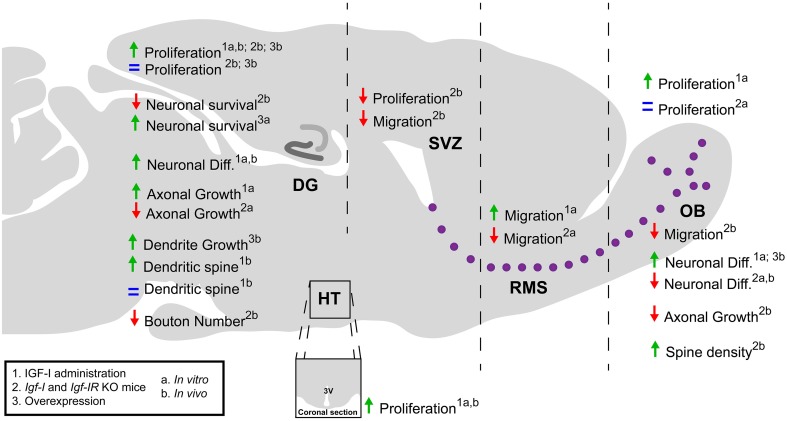Figure 1.
A schematic summary of the role of IGF-I during postnatal-adult neurogenesis. The IGF-I is a pleiotropic factor that affect a variety of cellular processes. The administration of IGF-I enhances cell proliferation and neurogenesis in the OB, DG, and HT in vitro and in vivo. However, the use of transgenic mice that overexpress IGF-I or lack the Igf-I and Igf-IR genes has revealed contradictory effects of IGF-I signaling on these processes. IGF-I promotes cell migration in the SVZ-OB and the survival and axonal growth of neurons in both the SVZ-OB and DG. In contrast, the effects on dendritic spines and synapse formation may depend on the neuron type and developmental stage of the cell and animal. DG, dentate gyrus; Diff., differentiation; OB, olfactory bulb; RMS, rostral migratory stream; SVZ, subventricular zone; HT, hypothalamus; 3V, third ventricle.

